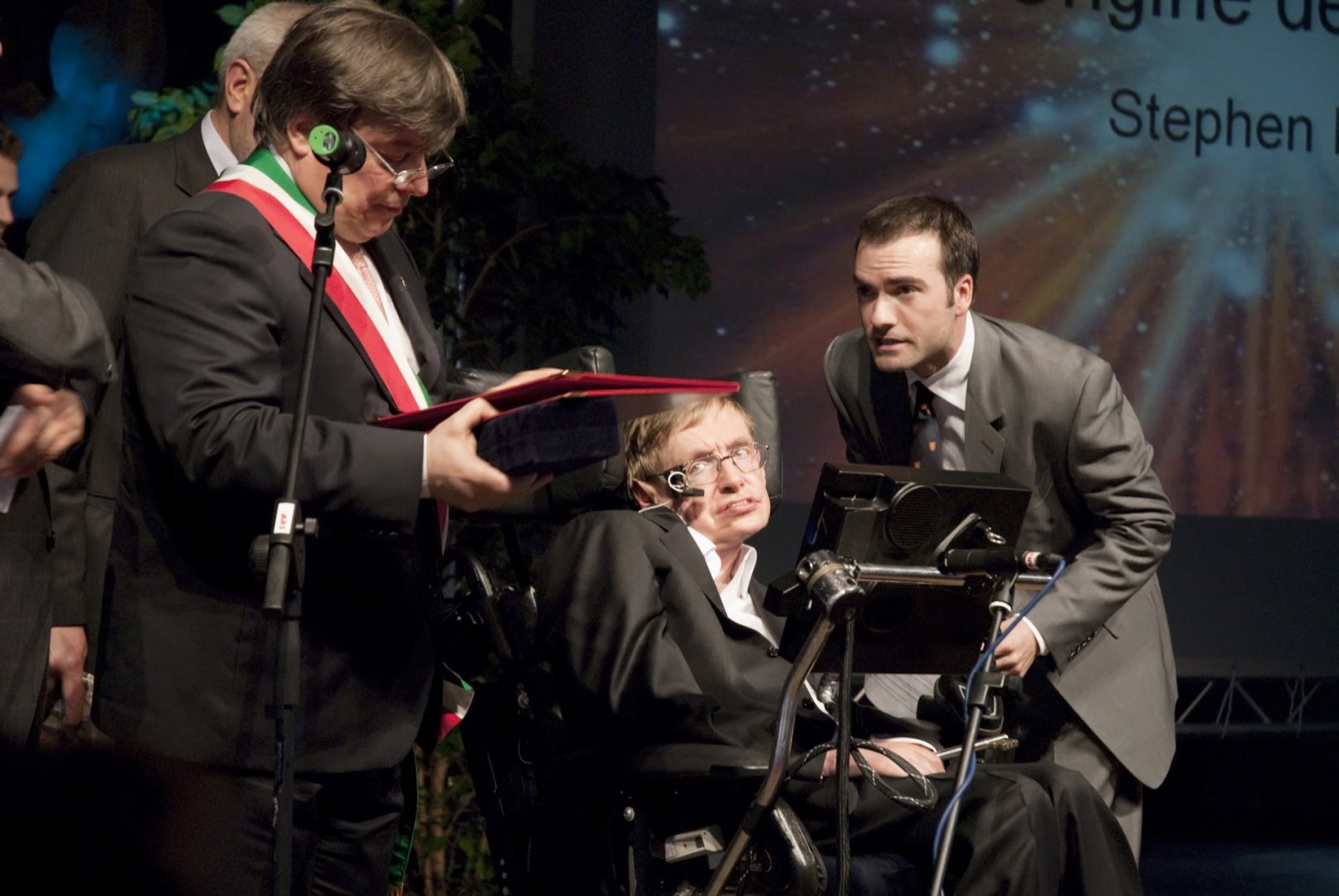“Because there is a law such as gravity, the Universe can and will create itself from nothing. Spontaneous creation is the reason there is something rather than nothing, why the Universe exists, why we exist.” This is Stephen Hawking’s statement that accompanied the book launch of “The Grand Design”.[1]
Over the past two decades, Stephen Hawking has often been quoted for his famous comment on the question: Why does the Universe exist and why do we exist? In his 1988 book A Brief History of Time, he stated: “If we find the answer to that, it would be the ultimate triumph of human reason—for then we would know the mind of God”. That statement was often interpreted as an openness by the famous physicist to the possible involvement of God in the creation of the world.
At the respectable age of 68, Stephen Hawking co-authored, together with physicist Leonard Mlodinow, the book in which he shares his latest ideas about the Universe. The publicity that preceded the launch of The Grand Design relied on the new, verdict-like position Hawking takes: “It is not necessary to invoke God to light the blue touch paper and set the Universe going.”
A few days after the book launch, on the “Larry King Live” show,[2] Hawking nuanced his statement, seemingly with a note of detachment or out of an apparent desire to avoid complicating the debate: “God may exist, but science can explain the Universe without the need for a creator.”
Hawking continued with a series of short answers. When asked where the law of gravity comes from, the physicist replied that gravity is the consequence of the “M-Theory”, which he considers the only valid, complete theory of the Universe.
To me, Hawking’s most significant answer, however, seemed to be the following: “The scientific account is complete. Theology is unnecessary”. In other words, science tells us how we got here and, especially, why. And Hawking believes he knows why we’re here—because it just so happened that our Universe was able to sustain life, and the laws of physics did the rest. This is how the physicist explains the concept of the “fine-tuned Universe”,[3] which for many is an argument in favour of the existence of God.
The M-Theory, says Hawking, assumes the coexistence of all possible universes (parallel universes). If any possible type of universe exists, among them should be, of course, a universe that supports life. This just so happens to be our universe. That is why Hawking no longer needs, in his framework, the intervention of the uncreated God to forge the necessary conditions for life in this universe.
Interestingly enough, to the general public, the association of Hawking’s name with these statements probably conveys the idea that science has just demonstrated the absence of God.
You may also be interested in:
In reality, his unscientific conclusion (“creation does not require God’s intervention”) more likely reflects a change in Hawking’s belief, because, in essence, it is a speculative interpretation of the implications of an equally speculative theory. Without any evidence of the existence of these “gazillion” parallel universes, Hawking not only infers that their existence is real, but also that this explains why we are here. For now, Hawking longs for the evidence that the present does not provide: “I would travel into the future to find if the M-Theory is indeed a theory of everything.”
Therefore, pay attention to the first reaction you have, the one on the couch in front of the TV! Science has not proven anything new about the universe.




















